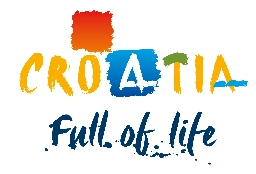
en


Accessibility tools
Large text
Invert color
Black & white
Letter spacing
Line spacing
Large cursor
Reset tools
Useful information about Istria
Travel documents
To enter Croatia you are required to have a valid passport or a document recognised by an international treaty. Citizens of certain countries may enter with a valid identity card proving their identity and citizenship.
For additional information:
Croatian Ministry of Foreign Affairs
For additional information:
Croatian Ministry of Foreign Affairs
Customs regulations
Almost all of Croatia’s customs regulations have been aligned with EU regulations. Customs duties and VAT are not charged on the import of non-commercial items for personal use that do not exceed the value of 1,000 HRK.
For additional information:
Customs Directorate
For additional information:
Customs Directorate
Luggage
There are no restrictions concerning the amount of personal luggage a foreign citizen may bring into Croatia. Travellers are free to bring into or take out of Croatia foreign currency up to the value of 10,000 EUR and domestic currency, up to 15,000 HRK. Amounts exceeding these values should be declared at the border, as well as any costly professional or technical equipment.
Money
The kuna is the official currency used in Istria and Croatia. Most hotels, restaurants and shops accept credit cards (American Express, Diners Club, Eurocard/Mastercard, Visa) as means of payment. Foreign currency may be exchanged in banks, exchange offices, post offices, travel agencies, hotels, campsite and marinas. Cheques may be cashed in banks.
For additional information:
Exchange rates
For additional information:
Exchange rates
Medical care
Hospitals or clinics are located in all major towns and cities, while smaller towns have infirmaries and pharmacies. Tourists with compulsory health insurance coverage, travelling from countries with which Croatia has a social security agreement, are not required to pay the cost of emergency medical services upon presentation of a form confirming medical insurance coverage. Tourists from countries that do not have a signed agreement with Croatia are required to pay their health care costs.
Travelling with pets
House pets can be brought into Croatia providing they are accompanied by a valid certificate of good health. House pets must be vaccinated for rabies and micro-chipped. Pet owners or carers are required to have a valid pet passport or an official veterinary certificate for their pets.
For additional information:
Customs Directorate
For additional information:
Customs Directorate
Opening hours
During the tourist season, most shops are open every day, including weekends from 8 a.m. to 10 p.m., except on holidays. During the rest of the year, opening hours on weekdays are from 8 a.m. to 7 p.m. and usually from 8 a.m. to 1 p.m. on Saturday. Shops are closed on Sunday. Public services and business offices mostly work from 8 a.m. to 4 p.m. Monday through Friday.
More information on opening hours is available at Tourist Boards in our towns.
More information on opening hours is available at Tourist Boards in our towns.

Subscribe to our newsletter
Keep up with the news
Additional Information


©2024 Colours of Istria. All rights reserved. No part of this site may be reproduced without our written permission.



©2024 Colours of Istria. All rights reserved. No part of this site may be reproduced without our written permission.




















